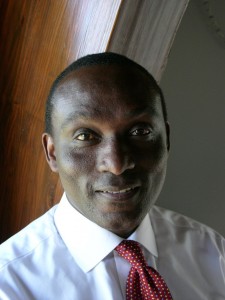UNDP Chief Technical Advisor to the Minister of internal Affairs;
Inspector General of Police, Government of Southern Sudan
I am currently working to help in building a functional police institution in South Sudan. Therefore much of my involvement is in meetings with government officials, supporting the establishment of police infrastructure, putting in place laws and regulations, designing codes of conduct, training curriculum, establishing regional/international linkages with other police forces; and oversight mechanisms to watch police behaviour and conduct. We have just finalized a community policing project proposal where we hope to engage the public and the police to understand each other and work towards community security.
As part of the implementation process for the Comprehensive Peace Agreement (CPA), one of our units, here in UNDP Southern Sudan, called “Access To Justice”, engaged the communities a great deal in drama, songs and paintings to pass on messages of post conflict social reconstruction. University and high school students participated in the performances. The unit also published simple easy- to- read materials. This has now ended, because the CPA has come to an end and we are waiting for the new republic of South Sudan, come July 9th, 2011.
April 2006: Upon returning to Uganda, I returned to working with the police force, and I was promoted to director of information, public relations and protocol in the force (See article).
However, in June I was interviewed for the post of Technical Advisor to the Inspector General of Police, Southern Sudan. I passed the interviews for the Juba job and moved to Jube to begin working on the 1st of July. This is a UN posting, for the next 3 years.
I am quite busy and the challenges are glaringly real. There are no systems in the law enforcement area, and my major task is to try and establish them. The police must be strongly founded to be able to hand the huge problem of the existing gaps in civil policing.
We shall be designing community policing strategies to address the high levels of conflict that are almost cultural as a result of the long civil war here—over 25 years. Restorative justice programs will have to play a leading role in order to facilitate peaceful resolution of disputes and conflicts. There is a strong presence of traditional chiefs in this region of Southern Sudan, and we shall have to rely heavily on them to manage important issues like transitional justice. The local communities believe in them more than they believe in the police.
Another role for these traditional chiefs is community disarmament. Communities in Southern Sudan were armed extensively, and this has been used as a means to settle all conflicts.
